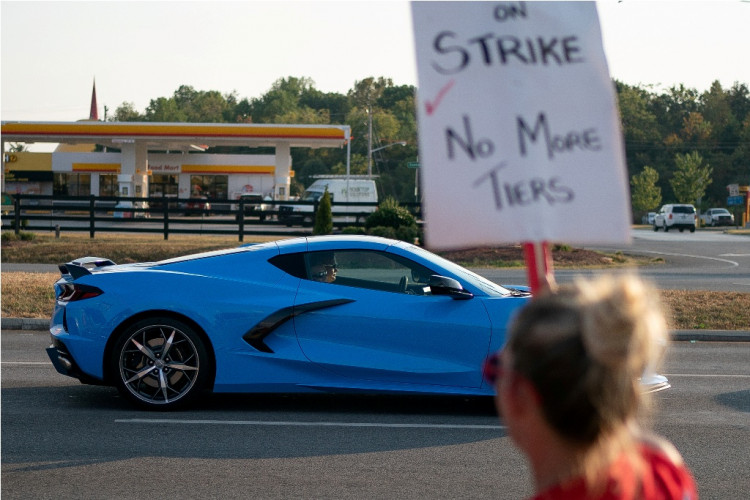In a ripple effect stemming from the United Auto Workers (UAW) strike, both General Motors (GM) and Stellantis have announced significant layoffs, underscoring the broader impact of labor disputes on the automotive industry.
GM has taken the step of idling its Fairfax, Kansas plant, which employs 2,000 hourly workers. The decision was attributed to a shortage of stamped parts, which are supplied by Wentzville's stamping operations in Missouri to the Fairfax facility. This plant is responsible for the production of the Chevrolet Malibu sedan and the Cadillac XT4 SUV. The workers affected by this decision will not receive supplemental pay from GM during their layoff period. GM emphasized the negative consequences of the UAW's decision to strike, stating that the layoffs are a testament to the fact that "nobody wins in a strike."
Stellantis, the parent company of brands like Jeep, Chrysler, and Dodge, has also been affected. The company announced immediate layoffs for 68 workers at its machining plant outside Toledo, Ohio, attributing the decision to "storage constraints" resulting from the UAW strike at its Toledo-based Wrangler and Gladiator plant. This strike is now in its sixth day, and Stellantis anticipates further layoffs, estimating more than 300 additional job cuts at its facilities in Kokomo, Indiana.
The UAW's decision to strike has not only affected GM and Stellantis. Ford Motor Co. also felt the repercussions, laying off approximately 600 workers at its Bronco and Ranger plant in Wayne, Michigan, following a UAW strike targeting body and paint shop workers at the facility.
Despite the ongoing strike, Stellantis has extended a new contract proposal to the UAW, aiming to bring an end to the six-day walkout. However, details of this offer have not been publicly disclosed. The UAW has set a deadline for "serious progress" in negotiations with the Detroit Three automakers. If the companies fail to meet the union's demands by this deadline, the UAW has threatened to expand its strike to include more plants.
The current demands of the UAW include a pay raise of over 30% spread across four years, the reintroduction of defined-benefit pensions for all workers, and a 32-hour work week while still receiving pay for 40 hours. In contrast, the automakers have proposed a pay increase of around 20% and have resisted some of the union's other stipulations.
The ongoing labor dispute has raised concerns about the future of the automotive industry, especially as companies like GM transition towards electric vehicle production. Mark Reuss, President of GM, emphasized the company's commitment to its workforce, stating that GM's offer to the UAW ensures work for every U.S. facility without any plant closures.
As the strike continues, the industry watches closely, waiting to see how these negotiations will shape the future landscape of automotive manufacturing in the U.S.






